The flawed human race, trapped in a cycle of cascading pain and wrong, is what and who God is bound and determined to love; the question is, How can He do it?
Thirteen years ago at this time, New York City was paralyzed by a blizzard; thankfully, I was visiting family outside the city when the snow fell and was able to hole up in my house upstate where I taught at Bard College. There was plenty of snow up there, but around Bard, people know how to deal with big snowstorms. The streets were clear, the stores open, and it was a quiet New Year’s weekend grading term papers and otherwise tending to business.
A fresh fall of snow is a wonderful thing. For the first few hours, the snow is pure and fresh; then the people (and the dogs) come out.
Gradually, the snow is trodden down, plowed into icy heaps, and begins to turn various unsightly colors as the soot from passing cars and various other substances defile it. After a few days, it is an ugly, unsightly mess, and one longs to see it cleared away.
New years can be like that, too. They start out clean and pure, and we make resolutions to keep them that way. Then, over time, the old habits creep back, and before long we will be needing a fresh start once again. That’s not a bad metaphor for human history. Think of South Sudan, newly independent after decades of war with northern Sudan. It was going to be a new beginning, a bright new world. But it wasn’t long before new wars broke out as bitterness, jealousy, and tribal rivalries poisoned the life of the new polity.
Think of the Arab Spring. Or think of the Internet—so bright and shiny with the promise of a more peaceful and democratic world not long ago, and now increasingly a venue for espionage, hacking, the worst kinds of sexual exploitation, and cyberwar. Human nature doesn’t change when it goes online, and all the problems of the “real” world are popping up in cyberspace.
God has a problem. It’s us. We keep messing things up.
Over the past few days, we’ve been delving into the meaning of Christmas; it’s led us into a discussion of the Christian concept of God. There are many qualities that can be used to describe the Deity; Muslims often speak of the “99 names of God,” and it’s an instructive and beautiful list on which any monotheist can profitably meditate.
But at the end of the day, for Christians, the heart of the matter is this: God is love. Love doesn’t just describe God’s relationship to the creation; it describes God’s essence—His inner life and being. This, as we have seen, is the origin of the Christian idea of the Trinity: love is so intrinsic to the divine nature that we cannot conceive of His unity as solitude.
From a Christian perspective, God’s act of creation is an expression of love. God made the world because He wants an abundance of beings and sensibilities to love, to be with, to share life with, and to make happy.
That is where we come in. We have no way of knowing whether there is life on other planets, much less what, if anything, it thinks and whether it has religious aspirations. But among those life forms we know anything about, people have a particular place in God’s plan.
The Bible tells us that God loves animals and even plants. He knows when any sparrow falls, and it is His care that provides the beasts of the field with their nourishment. As the Psalmist says, “The eyes of all wait upon thee; and thou givest them their meat in due season. Thou openest thine hand and satisfiest the desire of all things living” (Psalm 145:15-16). God clothes the lilies of the field, Jesus says, more gloriously than King Solomon in all his robes (Matthew 6:28-29).
But people have a special place in the Creator’s heart. Made in God’s image and given both personality and intelligence, we were created because God wanted beings with whom He could share the kind of love that animals and plants can’t give. Strange as it may seem, the Maker and Ruler of the universe seeks out the pleasure of our company and has made Himself vulnerable to us; we can please God and we can hurt Him by the ways we treat Him, treat ourselves, and treat one another.
All this means that human beings present God with an extraordinary problem.
On the one hand, God finds us irresistibly lovable, beautiful, and, where God’s love is concerned, needy. How could we not be? Beings made by love out of love are inescapably drawn to the perfect love from which they come. No matter how grizzled and grumpy we become with the passing years, or how pimpled and snarky we turn in our adolescence, God looks at us with the kind of tender solicitude and hopeful anxiety with which we look at small children.
Yet at the same time, like many angelic-looking children, we can be a fairly nasty bunch of characters, more Lord of the Flies than Little Lord Fauntleroy. Just pick up a newspaper or go to your favorite news site: genocides, starvation, sexual tyranny and exploitation, vast contrasts of poverty and wealth; terror, arms races, environmental destruction; the rich and the poor cheating and stealing from one another, with the rich generally doing best because they’ve got more power to abuse; nations nursing ancient wounds as hatreds fester.
Or back off from these entrenched historical evils and look at what goes on in families, neighborhoods, and among friends. Children of alcoholics and addicts grow up with psychological wounds that predispose them to repeat the same sad behavior. Widespread epidemics of cheating in school, cheating on taxes, cheating on expense accounts, cheating on spouses. It’s a bit like the national debt; each generation gets the bill for its parents’ shortcomings—and passes that bill with some additional charges down to their own heirs.
Christians talk about this situation under the heading of “original sin,” saying that our species has been a dysfunctional family since the dawn of time, and that each of us repeats and adds to that cycle of abuse and betrayal in our own way, even as we suffer from the damage done by those who came before. Other religions object to the kind of metaphysical structure that Christians give to the concept, but virtually everyone intuitively gets this picture of a human race somehow at war with itself and fundamentally out of whack.
This flawed race, trapped in a cycle of cascading pain and wrong, is what and who God is bound and determined to love; the question is, How can He do it?
From the Christian point of view, this is not a trivial problem. People aren’t just messy and incomplete. We are actively evil. We aren’t just victims of an unjust society and a tragic history; we make choices that perpetuate and even deepen injustice and add new dimensions to unfolding tragedies of our time.
God is so loving that He can’t leave us to perish in our misery and mess. He wants us with a love that will not be denied. Yet at the same time, God is too just, too all-seeing to overlook what’s going on.
Think of a God’s-eye perspective on someone who beats and abuses a child. God sees the helpless victim and burns with anger; yet He also knows that the perpetrator was once an innocent victim. He felt all the fear and pain of the young child who has grown up to become an abuser, feels all the pain of the adult who has grown up twisted. Knowing the future, as God does, He perhaps can see a time ahead when today’s victim is tomorrow’s bully. He can see the fanatical Nazi as a child growing up in a culture wrenched out of shape by defeat, civil strife, and a ruinous inflation. He can see the Russianmafioso as the product of a society that suffered genocidal violence at the hands of both Soviet and Nazi oppressors. He sees the genocidaires of Rwanda and Darfur as victims in their own way of societies gone deeply wrong. Yet He also hears the cries of their victims.
It is not just the spectacular sinners, with their hands drenched in blood, whose victims cry out for justice. The quiet, respectable sinners—those American whites, for example, who could have done something about racial injustice but chose to turn a blind eye—have responsibilities that a just and loving God cannot ignore.
God cannot love the victim of violence or exploitation without loving and indeed demanding justice; but He cannot love anybody at all unless He finds a way to deal with the reality that no human being can withstand strict moral scrutiny. To hold everyone to a strict standard is to condemn the whole world, but to wink at the real evil that people do is to give up on the moral standard of true justice, and to leave people trapped in a cycle of evil and pain. Christians believe that God refused to choose between His love and His justice. He refused to overlook the evil of the world and say things were OK when they weren’t, but He also refused to walk away from the whole ugly mess.
Instead, God chose to engage. He would draw closer to us, but not in a way that took evil lightly. Specifically, God chose to become a human being, to live with us, and ultimately to do for the human race what we could never have done for ourselves. The baby in the manger wasn’t just there to look cute and beam rays of benevolence to shepherds and kings. He was born to suffer rejection and injustice, to be tortured and scourged, humiliated and mocked, to face an unjust trial before an oppressive foreign ruler, to feel the full weight of the wrath of God due to all the evil in the world, and to die a cruel death while being ridiculed and mocked by those He came to serve.
God resolved the dilemma between love and justice by taking them both all the way. The Creator of the world took the hit we had coming. God really knows us; He knows the worst things about us and isn’t fooled by our rationalizations and evasions. And He still loves us enough to be born among us and to pay the price for all we have done.
Jesus came to deal with the flaws, the weakness, and the twisted selfishness that stand between us and God. He came to deal with the reality that no matter how much we might wish to live the right way—we haven’t and don’t.
He came to show and live out God’s radical commitment to His creation. People aren’t just a hobby for God; the universe isn’t a diversion for Him. Infinite Love made us to share an infinite intimacy and will go to infinite lengths to restore that bond no matter how deeply or how horribly we have failed. That love is not blind; it knows what messes we make of our lives and how we wound and damage others. But even so, God is determined to be with us.
That is why there was a baby in the manger. That is why we celebrate this time of year. God knows exactly who we are, loves us anyway, and will do whatever it takes to make this relationship work.
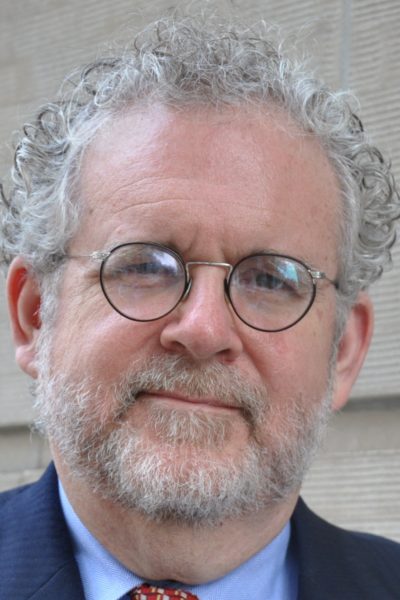
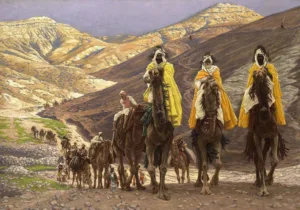
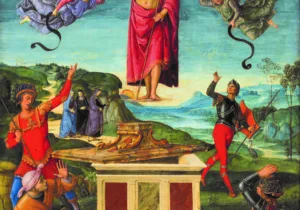
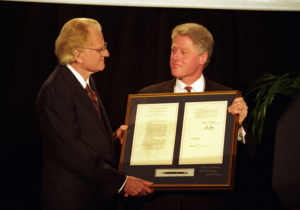
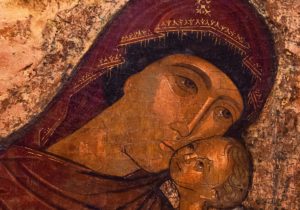


 Sponsor a student for Christianity & National Security 2024
Sponsor a student for Christianity & National Security 2024